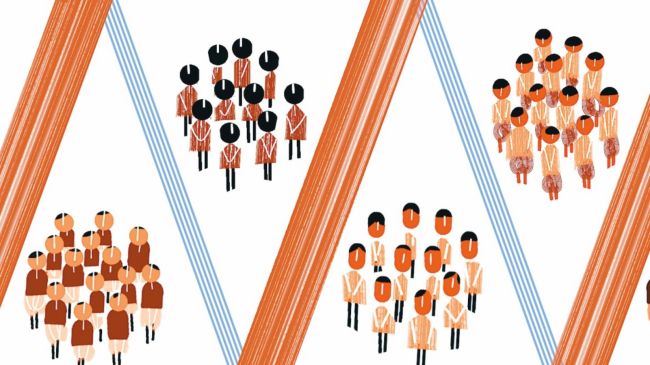Opinion Tejashwi Yadav writes: Why we need 85 per cent reservation and its inclusion in the Ninth Schedule
The artificial and unscientific 50 per cent ceiling imposed by the judiciary – neither representative of the will of the people nor representative of the composition of the society, much less demographic data – needs to be challenged
 Nobody can deny that caste census data is essential to rectify the highly skewed development map of India in terms of certain groups acquiring a larger share.
Nobody can deny that caste census data is essential to rectify the highly skewed development map of India in terms of certain groups acquiring a larger share. As readers may be aware, I recently reached out to Bihar Chief Minister Nitish Kumar in the context of the conversations around the caste census. The CM’s silence on my demand for including the enhanced state reservation quotas in the Ninth Schedule of the Constitution has once again exposed the NDA’s so-called double-engine government’s hypocrisy on social justice issues. That they have nothing to say clearly reveals their deeply ideological and hostile attitude towards the poor, the oppressed, and the marginalised.
The NDA’s reluctance to conduct a nationwide caste census in the spirit demanded by Opposition parties like us is rooted in a combination of political, ideological, and electoral calculations. The BJP has long practised polarisation politics through homogenising religious identity. Their aim has been to subsume caste distinctions under a broader religious framework and continue to reproduce the hierarchical varna structures in politics and governance. They are afraid that a comprehensive caste census would throw up hard data on caste-based disparities, reinforcing the relevance of caste in public policy, which goes against the BJP’s preferred narrative of a fictional development.
The BJP’s core leadership and significant vote base, especially in the Hindi heartland, draws heavily from upper castes. A caste census will highlight the marginalisation of OBCs, SCs, and STs in representation and access to power. The BJP fears that a caste census would likely lead to a demand for increased reservations based on population share. This fear drives their resistance to our legitimate demands for social justice.
Detailed caste data would provide historically oppressed and marginalised groups a powerful electoral and policy weapon to demand reservation realignment and targeted welfare interventions. The implementation of enhanced reservation quotas based on the findings of a scientific caste census shall be a political decision and a socio-economic imperative rooted in the constitutional ideals of equality and justice. Opposition parties like ours have been pushing for the caste census because it strengthens the commitments made in the Constitution. A caste census provides the empirical foundation to reconfigure reservations in a way that reflects the actual social and economic realities on the ground, thereby fulfilling the constitutional promise of equality and social justice.
This is exactly why I am demanding concrete action in Bihar through fresh laws to raise reservations to 85 per cent. We need the Centre’s support through the Ninth Schedule because we understand that without constitutional protection, these progressive measures can be challenged and diluted. The artificial and unscientific 50 per cent ceiling imposed by the judiciary – neither representative of the will of the people nor representative of the composition of the society, much less demographic data – needs to be challenged.
Nobody can deny that caste census data is essential to rectify the highly skewed development map of India in terms of certain groups acquiring a larger share. By aligning reservation policies with contemporary demographic and socio-economic realities, the state can address the systemic exclusion that persists in education, employment, and political participation. A caste census would provide empirical clarity on the actual representation and deprivation levels of various sub-groups within the Scheduled Castes, Scheduled Tribes, and Other Backward Classes. An enhanced quota of reservation, guided by the findings of a caste census, would serve as a vital corrective measure to address the historical under-representation of marginalised communities in education, employment, and governance, besides making the private sector reflect the diversity in their employment policy. In essence, reservation without accurate data risks perpetuating inequality; with a caste census, it can evolve into a precise tool for justice and empowerment.
What perturbs me is that the Union government led by Prime Minister Narendra Modi has remained non-committal on this issue for a very long time. I have seen this duplicity firsthand in Bihar politics. The BJP talks about supporting backward classes during elections, but when it comes to concrete action like supporting our 85 per cent reservation demand or pushing for Ninth Schedule inclusion, they maintain a studied silence. There were attempts to thwart it by proxy organisations in the corridors of the judiciary. This dual strategy was employed to help the BJP balance regional pressures while keeping the national position cautious and aligned with broader ideological goals it has inherited from the RSS. This exposes their real priorities and allegiances.
If the BJP and their partners in the NDA, especially those from Bihar, cannot do this much after ruling the state for nearly 20 years, one cannot expect anything from them after the recently announced half-hearted national caste census. The BJP’s overall reluctance stems neither from administrative challenges nor logistical challenges, but from political apprehensions: A caste census could upend the carefully crafted social coalition it relies on, revive the unmet concerns of social justice, and challenge its ideological framing of Indian society.
As we all know, a full-fledged, transparent caste census could produce uncomfortable truths for the BJP, which it cannot spin or suppress. The data would reveal the actual numbers of different caste groups and subgroups and their representation in various sectors, making it impossible for the BJP to continue with their rhetoric while denying real empowerment.
My demands in Bihar for enhanced reservations and special legislative sessions are part of this larger battle for transparency and justice. When I ask the CM to convene a special assembly session, I am demanding that we move beyond empty promises to concrete legislative action that can withstand judicial scrutiny through constitutional protection.
The time has come for all political parties to decide whether they stand with the constitutional promise of equality or with the forces that want to preserve historical privileges. A comprehensive caste census is the first step towards building a truly representative democracy where policy is based on facts, where resources are allocated justly, and every citizen gets their rightful place in the nation’s progress.
Until we get this census, our fight for social justice will continue through legislative assemblies, Parliament, and every democratic forum available to us. The truth cannot be suppressed forever, and the people of India deserve leaders who will fight for their rights with data, determination, and unwavering commitment to constitutional values.
The writer is the Leader of the Opposition Bihar Legislative Assembly




